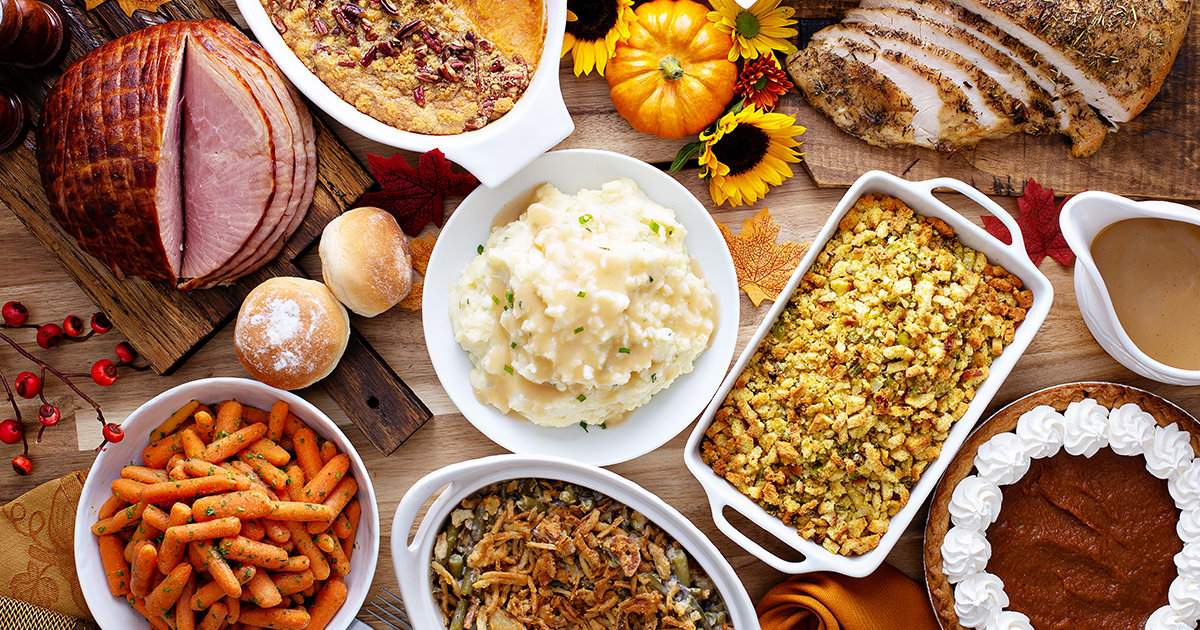Beat the heat, savor the feast
Tips to prevent heartburn this Thanksgiving.
Reviewed by: Stephanie Doggett, PA-C
Written by: Lauryn Feil

It’s no coincidence that Thanksgiving falls during a time when heartburn can easily disrupt festive gatherings, including family meals and celebrations. Over 30 million Americans suffer from heartburn caused by gastroesophageal reflux disease (GERD), also referred to as acid reflux. Affecting approximately 1 in 5 adult men and women, GERD can lead to chronic symptoms that, if left untreated, may require medical attention and treatment options.
Common symptoms of GERD include heartburn after meals and regurgitation. Atypical symptoms may include voice hoarseness, frequent throat clearing, and a chronic cough. These symptoms are often treated with medical therapy. While an occasional episode of heartburn isn’t likely to cause lasting harm to the esophagus, consistent symptoms (occurring two or more times a week) may lead to more serious complications if left untreated. Over time, stomach acid moving into the esophagus can cause damage, including difficulty swallowing or a precancerous condition known as Barrett’s esophagus.
So, if you’re looking forward to the big feast (as we all are) but are worried about the potential for heartburn, here are some tips for managing GERD symptoms during the Thanksgiving holiday.
Ways to curb GERD symptoms this Thanksgiving:
- Schedule an earlier meal. Try to avoid eating late at night if you suffer from GERD.
- Serve light appetizers. Fatty foods such as chips, dips, and cheeses are slow to empty from the stomach and can aggravate symptoms.
- Stay active. Keep up with your exercise routine during the holidays, as weight loss can help alleviate GERD symptoms.
- Don’t smoke. Nicotine weakens the muscles in the esophagus, which helps prevent stomach contents from flowing back up.
- Nix the juice. Citrus fruits and juices, such as grapefruit, orange, and tomato, are acidic and can worsen GERD symptoms.
- Season lightly. Spicy foods, onions, and garlic can irritate GERD and make heartburn worse.
- Limit alcoholic drinks. Whether it’s wine at dinner or beer during the game, alcohol can exacerbate reflux.
- Pass on deep frying the turkey. Fried foods are known to trigger GERD symptoms.
- Reduce portion sizes. Eating large meals can cause symptoms, so try smaller meals spread throughout the day.
- Substitute water for soda. Caffeinated and carbonated beverages are notorious heartburn triggers.
- Watch the desserts. Chocolate might be a favorite, but it often worsens GERD.
- Skip the after-dinner mint. Peppermint is another common heartburn irritant.
- Give yourself time to digest. Physical exertion after a meal can lead to reflux.
- Stay awake! While the turkey may make you sleepy, avoid lying down within two hours after eating, because this can trigger GERD symptoms.
- Talk to your doctor. An accurate diagnosis is the first step in receiving the most effective treatment.
If you suffer from chronic heartburn, indigestion, or acid reflux, effective treatments beyond over-the-counter medications can help you enjoy the feast without the discomfort of GERD and provide lasting relief by resolving the condition for good.
For more information about the Texas Center for Esophageal and Foregut Surgery or to request an appointment, call 1-512-495-GERD (1-512-495-4373) or visit here.
For more information about the Gastroenterology Clinic at UT Health Austin or to schedule an appointment, call 1-833-UT-CARES (1-833-882-2737) or visit here.